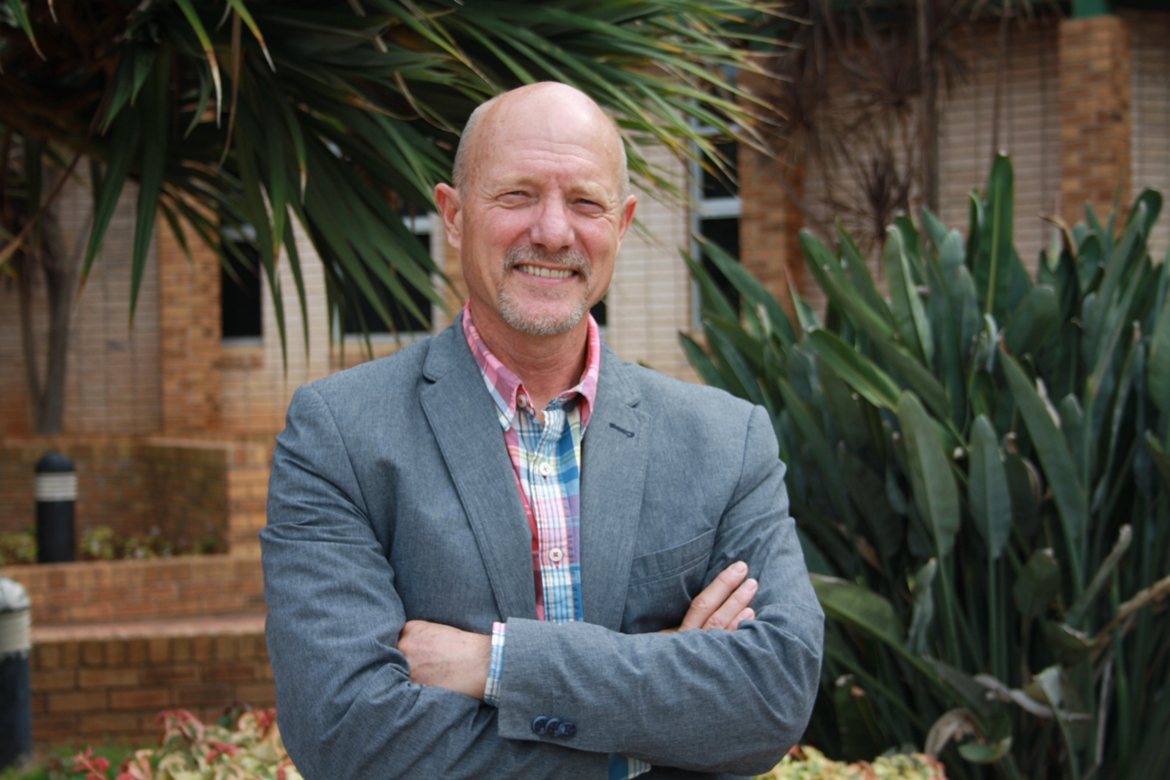THE Indian Ocean is warming up twice as fast as any other ocean on the planet, says oceanographer Mike Roberts. This is affecting many ocean processes, including upwelling, where deep, cold, nutrient-rich water rises from the bottom of the ocean to the surface – feeding the tiniest inhabitants of the sea, phyto (plant) plankton, with a ripple effect on the sea animals that feed on plankton, and those that feed on them, to the very top of the food chain.

SHARED CHAIR: Professor Mike Roberts is the incumbent of the Research Chair in Ocean Science and Food Security, jointly hosted by the Nelson Mandela University, the University of Southampton and the UK’s National Oceanography Centre
And any changes in the marine food chain is felt hardest by those whose very survival depends on what they are able to catch out of the sea: the artisanal fishermen who use small boats and canoes.
Roberts – as the incumbent of a Research Chair in Ocean Science and Food Security, shared by the Nelson Mandela University, the University of Southampton, and the UK’s National Oceanography Centre – is monitoring how climate change and a changing ocean is impacting food resources – and will ultimately use this research to influence ocean governance and marine food security structures.
As yet, not enough is known about the marine ecosystems, or how these are changing, in the Western Indian Ocean – which stretches from Cape Town to Kenya, covering the east coast of Africa and islands such as Mauritius, Madagascar and the Seychelles – where an estimated 60-million people depend on the sea for their livelihoods.
The Chair was created last year to fast-track marine research in this area, through the development of the Western Indian Oceans Upwelling Research Initiative (WIOURI).
A large part of the Chair’s work involves the collection of data using ships, automated subsea gliders, moorings, satellites and ocean modelling.
“Through the Chair, we have built an ‘innovation bridge’ between South Africa and the UK – which facilitates access to scientific expertise and technologies – and another one between South Africa and France – in terms of having access to research ships staffed with ocean science experts,” Roberts said.
“These two nations offer complementary but different skills sets, so that we can build a centre of excellence in the region in no time.”
Thus far, there are seven post-graduate Nelson Mandela University and Rhodes University students conducting research under the Chair, but the aim is to increase this number to 20 by 2019, while also attracting students from East African universities.
The students have already completed two research cruises to collect data, where they investigated two “seamounts” south of Madagascar – one with a peak 18m below the surface and the other 260m.
“As the currents move around these mountains, it creates upwelling, making them a rich feeding ground for fish, and drawing fishermen,” Roberts said. Another project along South Africa’s south coast is examining which changes in the ecosystem caused the squid industry to collapse in 2014 and 2015 – with numbers of squid dropping dramatically – and why this improved last year, and whether it might occur again.
Still another project is researching the East African Coastal Current (EACC), focusing on Kenya and Tanzania, where almost nothing is known about the marine ecosystems.
This research is geared towards understanding how these ecosystems function, how they are changing and how this is impacting the marine resources that millions of people depend upon.
The Chair is hosted at the Nelson Mandela University’s newly-established Ocean Science Campus, where it works in tandem with the Research Chair in Shallow Water Ecosystems, and the South African Environmental Observation Network (SAEON).
The Nelson Mandela University has marine research expertise going back more than 30 years through its Institute for Coastal and Marine Research. The University also hosts the South African International Maritime Institute (SAIMI), and is involved in each of the working groups defined by Operation Phakisa to develop South Africa’s blue economy.